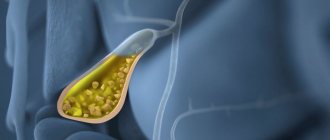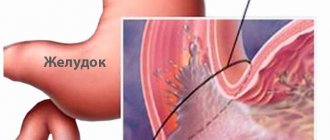The final section of the large intestine - the anus - is intended for excretion of feces. The external and internal sphincters hold feces, preventing spontaneous emptying. Normally, nothing comes out of the anus except feces. Transparent discharge from the anus, colored or colorless, may be the result of dysfunction of the digestive system, inflammation of the gastrointestinal tract, irritable bowel syndrome, helminthic infestation and other pathologies. If impurities appear in the stool or separate discharges that are not associated with defecation, you must seek qualified medical help.
Causes of pathology
Food poisoning
The simplest reason for mucus discharge from the anus is food poisoning or a long period of poor nutrition. As a result, the intestinal mucosa is irritated, and the body produces an increased amount of mucus as a defense against the harmful effects of feces. Mucus envelops the walls of the intestines and protects them from irritation and injury. In addition, excess mucus formation accelerates the evacuation of feces from the intestines. Similar processes occur during alcohol poisoning.
Dysbacteriosis
Abundant mucus secretion accompanies intestinal dysbiosis. With the help of mucus, the intestines try to protect themselves from harmful microbes. Often the stool takes on a green tint. Due to an imbalance in intestinal bacteria, vitamins and nutrients are less absorbed. Improper functioning of the intestines can cause inflammatory reactions, since against the background of dysbiosis, immunity sharply decreases. In this case, treatment consists of taking probiotics.
Food intolerance
Clear mucus may come from the anus if you have a food allergy. This is observed when:
- intolerance to dairy products (lactose);
- malabsorption syndrome (failure to absorb fats from food);
- intolerance to gluten from cereals (celiac disease).
Food intolerances can be lifelong.
Haemorrhoids
Mucous discharge from the rectum with hemorrhoids has some differences. Transparent or cloudy discharge does not mix with feces, but envelops it. At the end of a bowel movement, a certain amount of mucus comes out of the anus, which can be seen on used toilet paper. Along with this, the following are considered signs of hemorrhoids:
- itching in the anus;
- pain during and after bowel movements;
- chronic constipation;
- prolapse of hemorrhoids;
- drops of scarlet blood on stool or on toilet paper.
Crohn's disease
This chronic disease can develop throughout the digestive tract, from the mouth to the rectum. Most often, the inflammatory process affects the intestines, especially the ileum, colon and rectum. For some unknown reason, cells of the immune system begin to attack all layers of the intestine, resulting in deep erosions and ulcers. Over time, purulent fistulas and scars form, narrowing the intestinal lumen. Due to nonspecific inflammation, mucous and purulent discharge may occur. The disease is accompanied by pain and false urge to defecate.
Chronic paraproctitis
This inflammatory disease of the rectum affects the soft tissues surrounding the organ from different sides: the pelvic-rectal, ileal-rectal and retrorectal space. With chronic paraproctitis, a pararectal fistula forms, that is, a canal filled with purulent contents. It connects the rectal area and the skin of the perineum. The inflammatory process is accompanied by purulent discharge from the anus with an unpleasant odor.
Proctitis and proctosigmoiditis
As a result of infection in the intestines (gonorrhea, herpes, staphylococci, streptococci, etc.), inflammation of the rectum and sigmoid colon may begin. Inflammation causes pain, bowel movements and other unpleasant sensations. Sometimes with these diseases, mucus comes out after defecation.
Irritable bowel syndrome
This disease develops due to disturbances in the digestive system. It is accompanied by nausea, flatulence, rumbling in the stomach, constipation, diarrhea, painful cramps and frequent urge to defecate. A distinctive feature is repeated diarrhea. Frequent mucous stools, liquid like water, can quickly lead the patient to dehydration. He urgently needs to drink a lot, the liquid can be replenished with light broth, jelly, fruit drink, chamomile infusion, etc.
Perianal dermatitis
Perianal dermatitis is an inflammation of the skin around the anus. There is swelling and redness on the skin, and the patient suffers from itching. Fungal, allergic and bacterial skin lesions develop against the background of hemorrhoids, anal fissures, inflammatory diseases of the large intestine and rectum, as well as disorders of the intestinal flora. The disease can occur in men and women. Less than 10% of cases are associated with the spread of candidiasis. In this case, the discharge from the anus is white. White mucous discharge from the anus occurs when there is fungal damage to the colon, which can be caused by taking antibiotics.
Colon polyps
A polyp is a benign neoplasm that grows on the intestinal wall. Often it grows towards the intestinal lumen. Thus, it narrows the intestinal passage and can be injured by feces. A large polyp leads to intestinal obstruction. Injured polyps become infected, which causes pain, inflammation, spasms and other unpleasant symptoms, including mucus in the stool. Trauma to the rectal polyp causes blood and mucus to leak from the anus. A similar phenomenon accompanies anal condylomas.
Tumors of the rectum, sigmoid and colon
At an early stage, colon cancer does not show obvious signs. Primary symptoms include mucus discharge and blood from the anus. Initially, there may be streaks of blood in the stool. A growing tumor is more prone to injury, so the amount of blood increases over time. In this case, the stool becomes dark brown or black in color due to altered blood mixed with the stool. Sometimes the passage of dark blood precedes the stool. Late stages of cancer may be accompanied by foul-smelling stool in which blood clots are visible.
Transparent mucus from the anus with malignant tumors of the rectum is rare. Most often, the mucus contains streaks of blood, sanguineous discharge, and in the later stages - foul-smelling pus or purulent-bloody fluid.
Colitis
Colitis is an inflammation of the mucous membrane of the large intestine. Under the influence of infections or pathogenic flora, an inflammatory process develops. Swelling begins in the intestinal wall, peristalsis and mucus production are disrupted. Colitis is accompanied by a painful urge to defecate, abdominal pain, and diarrhea mixed with mucus and blood. After bacterial waste products enter the bloodstream, an adult patient's body temperature rises. Non-infectious colitis can cause strands of mucus or mucous lumps to appear in the stool.
Nonspecific ulcerative colitis
Nonspecific ulcerative colitis is a chronic autoimmune disease prone to frequent relapses. The immune system attacks the cells of the large intestine, causing destructive and ulcerative inflammation of varying intensity. Most often, the disease begins in the rectum and then spreads to other parts of the large intestine. The patient's body temperature is usually not elevated, but he experiences a painful, false urge to defecate. There may be mucus and thin streaks of blood in the stool.
Rectal ulcer
A rectal ulcer is a violation of the integrity of the mucous membrane. It can be single or multiple, and also have different depths of tissue damage. Most often, the disease develops due to injury to the intestinal mucosa by solid feces due to constipation or fecal stones. Rectal ulcers occur in people with rectal prolapse. Another cause of pathology can be a variety of infections, including sexually transmitted infections. Pain in the rectum intensifies during defecation. Bloody discharge from the anus of varying intensity is also characteristic. When an ulcer becomes infected, mucus and pus begin to ooze from the rectum.
Liver diseases layered on rectal pathologies
Sometimes, when problems in the large intestine are accompanied by liver disease, bile begins to be produced in excess. As a result, orange discharge with an unpleasant odor may appear from the anus, or orange streaks will be visible in the stool.
Ulcers occur in those who suffer from rectal prolapse. By its nature it is a benign formation, that is, formed from the cells of the organ itself.
Rectal ulcer
During the development of the ulcer, there is a violation of the integrity of the mucous membrane in the rectal area. The depth of tissue damage is quite varied. The cause of this pathological condition in most cases is constipation.
Also, the disease occurs against the background of various infectious processes. Patients complain of pain during bowel movements. The discharge of mucus mixed with pus can only be observed if the rectum becomes infected.
Rare causes of mucous discharge from the anus
In addition to the reasons listed above, there are more rare, but very dangerous diseases that are accompanied by mucus discharge from the anus. For example, intestinal diverticulosis, when the pathology causes the formation of pouch-like cavities in the walls of the intestine (diverticulum), where mucous contents accumulate over time. A long course of the disease may be accompanied by infection of the diverticula and the development of an abscess. It happens that diverticulosis is almost asymptomatic, but most often it can be observed:
- pain in the lower left abdomen of varying intensity;
- stool disorders;
- feeling of incomplete bowel movement;
- mucus in stool;
- increased gas formation.
Another serious systemic disease is cystic fibrosis. This hereditary disease affects all human organs that secrete mucus: bronchi, lungs, pancreas, sweat, salivary and reproductive glands, liver, and glands in the intestines. Mucous discharge is characteristic of the intestinal form of cystic fibrosis. Due to enzyme deficiency, the activity of the gastrointestinal tract is disrupted. The breakdown of food occurs incorrectly, nutrients are absorbed in insufficient quantities, which causes the accumulation of gases, cramping pain in the abdomen, the development of putrefactive processes, vitamin deficiency, weight loss and frequent bowel movements.
Excess mucus in loose stool occurs after surgical removal of a significant amount of the small intestine. Mucus may be released due to impaired retention of intestinal contents. It happens:
- after surgery in the rectal area;
- due to genital warts of the intestine;
- due to injuries to the pelvic floor muscles;
- due to deep anal fissures, etc.
Mucus from the anus is released during infectious diseases, hemorrhoids, and fissures in the terminal rectum.
Dysbacteriosis
White liquid usually indicates intestinal dysbiosis. Most often, this kind of discharge does not have any odor and may be accompanied by similar symptoms:
- abnormal stool, frequent constipation or diarrhea;
- flatulence and excessive bloating;
- unpleasant odor in the mouth;
- nausea and vomiting.
Most often, dysbiosis can be caused by intestinal poisoning, taking antibiotics, pathologies of the digestive system, and this problem can also arise as a result of low immunity and poor nutrition.
Long-term dysbacteriosis may lead to impaired absorption of nutrients and general depletion of the body.
VIDEO “FLUID WITH BLOOD FROM THE ANUS”
What to do if you find mucus in your stool
As you can see, the appearance of excess mucus in the stool or mucous discharge from the anus are signs of serious health problems. Without a doubt, you need to urgently seek advice from a proctologist, especially if you have noted:
- frequent and copious mucus secretion;
- drops of scarlet blood on stool or toilet paper;
- purulent mucous discharge;
- green, orange, black inclusions or whitish grains in the stool;
- any type of discharge, accompanied by a false urge to defecate and pain in the lower abdomen.
Don't be afraid of going to the doctor. The sooner you seek help, the more effective the treatment will be.
A couple of hours before your visit to the doctor you need to do a cleansing enema. The proctologist will take an anamnesis, conduct an examination and refer you for diagnostic examinations and tests.
If mucus appears in the stool, you should urgently contact a gastroenterologist, who will prescribe the appropriate tests and be able to select the correct treatment.
Mucus from the anus does not just appear; it is almost always a reason for a comprehensive examination and qualified treatment. Remember that this will not go away on its own, and without medical help, your condition can only worsen and lead to dire consequences.
Treatment
Treatment of pathology in most cases is carried out with the use of medications - suppositories with belladonna, cocoa, novocaine suppositories. It is also recommended to carry out sessile manganese baths, anti-inflammatory drugs of general or local effect.
Quite effective in this case is the venotonic Phlebodia, which is taken three times a day, one tablet.
In the absence of the necessary therapeutic treatment, after taking medications, patients are prescribed surgical intervention.
Regardless of the chosen therapeutic method, patients are advised to adhere to a diet. They should eat fiber-enriched foods and completely avoid spices, smoked foods and spicy foods. Drinking alcoholic beverages is strictly contraindicated.
When pathology appears, patients need to take medications that dilate the blood vessels in the legs. If secondary bleeding occurs, the use of Detralex is recommended. After the first doses, mucus secretion stops.
This is explained by the fact that the action of the medicine is aimed at healing wounds. Also, it has a pronounced anti-inflammatory effect. The drug is characterized by a complex effect, which allows it to not only eliminate the symptoms of the disease, but also overcome it.
How to properly treat hemorrhoids at home
Have you ever tried to get rid of hemorrhoids at home on your own? Judging by the fact that you are reading this article, victory was not on your side. And of course you know firsthand what it is:
- seeing blood on paper once again;
- wake up in the morning with the thought of how to reduce swollen, painful lumps;
- suffer every trip to the toilet from discomfort, itching or an unpleasant burning sensation;
- again and again hope for success, look forward to results and be upset by a new ineffective drug.
Now answer the question: are you satisfied with this? Is it possible to put up with this? How much money have you already wasted on ineffective drugs? That's right - it's time to end them! Do you agree? That is why we bring to your attention the method of Marta Volkova, who spoke about an effective and inexpensive way to get rid of HEMORRHOIDS forever in just 5 days... Read the article >>>
| Is the article useful? |
Diagnostics
When there is discharge from the anus, pathology is assumed in 100% of cases, because normally this should not happen. However, this problem is so diverse that even a specialist solves it by differentiation, gradually eliminating possible options. The necessary examinations include:
- Examination by a proctologist with palpation of the abdomen and rectum. Thus, hemorrhoids, tumors, polyps, and fissures in the anus are detected;
- Stool analysis. Detects infection, blood, quantitative and qualitative composition of the material. It is studied for dysbacteriosis, enzymes, a coprogram is made, bacterial culture
- Blood and urine will show the inflammatory process in the body;
- Biochemistry data will help identify problems with the pancreas, gall bladder, and liver;
- You can look into the intestines using a colonoscopy;
- Computed tomography or magnetic resonance imaging will allow us to assess the overall condition of the entire gastrointestinal tract for the presence of changes, tumors, and polyps;
- Sometimes an x-ray with contrast injection into the rectum is necessary;
- If suspicious formations are detected, a biopsy is performed.
Neoplasms
Most often, various types of neoplasms rarely have any symptoms, especially in the initial stages. Yellow or green liquid is practically the only sign. In some situations, ichor may be released. Such manifestations can also be caused by other intestinal diseases, and may be of an inflammatory, non-infectious nature. The late stages of colon cancer may be accompanied by the appearance of lumps of dark blood during bowel movements.











